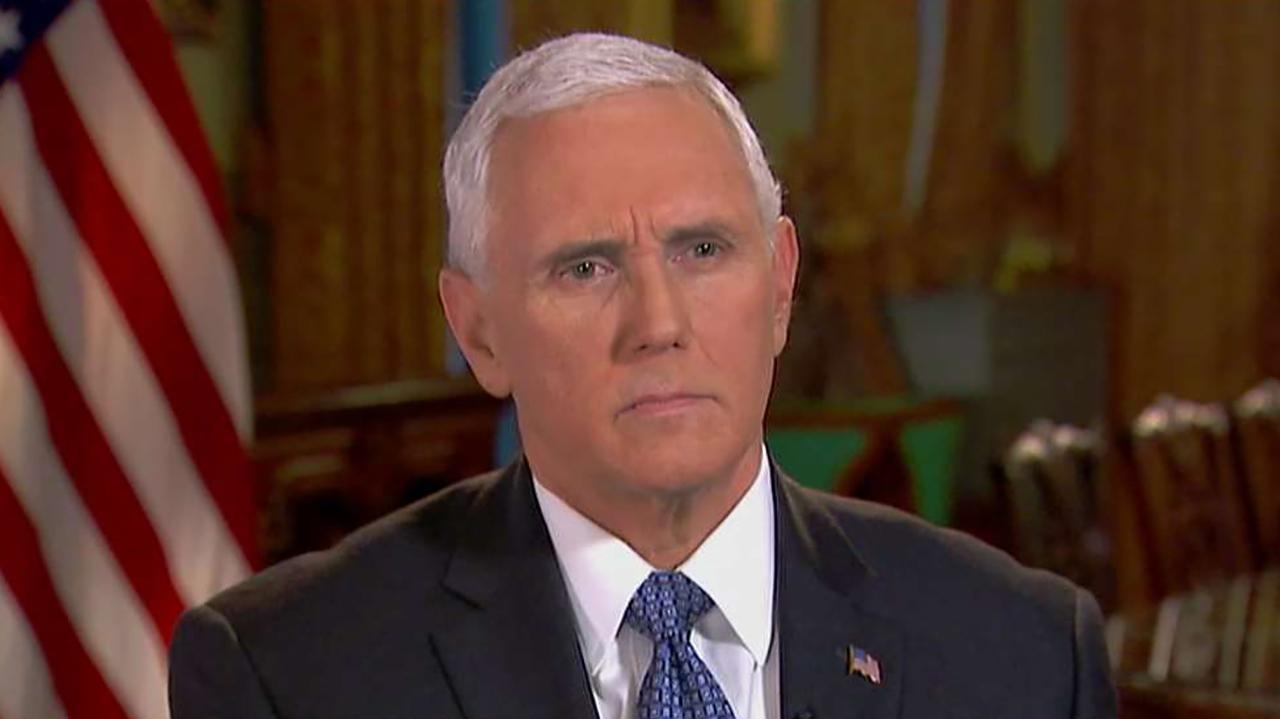Venezuela's top economic challenges
Political unrest in Venezuela is escalating as opposition leader Juan Guaidó was sworn in as interim president on Wednesday, officially recognized in that position by the U.S., and then President Nicolás Maduro’s regime broke diplomatic relations with the U.S. – ordering diplomats to leave the country within 72 hours.
The 35-year old political newcomer, Guaidó –who serves as leader of the opposition-dominated National Assembly – invoked protocol that can be legally taken under the country’s constitution whereby the head of the assembly can become national leader if the office of the president is wrongfully taken.
During an interview with FOX Business on Wednesday, Vice President Mike Pence said he hoped Maduro would be amenable to the will of the people.
“We hope that Nicolás Maduro will accept peaceful transition of power in Venezuela,” Pence said on “Trish Regan Primetime.” “That he will accept the will of the people to move his country forward and embrace their new president of Juan Guaidó.”
Venezuela – home to the largest oil reserves in the world – was once one of the most vibrant economies in South America. The country’s oil business was crippled by a number of factors, including the removal of technical experts from foreign oil companies, chronic mismanagement of the state-owned oil company and a collapse in crude oil prices. Production has since crashed.
While Guaidó has promised to act as interim president until free and fair elections can be carried out, here are some of the imminent economic challenges the country faces.
Hyperinflation
For the year ending in November, the opposition-controlled Congress estimated that inflation in the country had surpassed 1 million percent.
The International Monetary Fund cautions inflation could reach 10 million, percent in 2019.
Minimum wage amounts to under $5 per month, according to The Associated Press.
As a result, millions of residents have been forced into poverty under President Maduro – who has been called an illegitimate dictator by a number of leaders from countries around the world. That poverty, in turn, has caused a host of other economic challenges.
Food
The country is plagued by shortages of food. People are unable to afford necessities and wait in long lines to get basic items, some of which are now subsidized by the government.
In 2017, Venezuelans said they had lost an average of nearly 25 pounds, according to Reuters. More than 60 percent said they had woken up hungry because they did not have enough money to buy food.
A lack of food has led to an increase in looting, violence and crime. It has also led to fatalities.
Corruption has risen as the black market has become a hotspot for criminals to sell food items.
Citizens have been forced to rummage through the garbage for food.
Meanwhile, the Maduro government has declined to accept aid from other countries and agencies.
Health care
Aside from a lack of food, residents are also suffering from a lack of antibiotics and other medicine.
One doctor told The New York Times that facilities are “like something from the 19th century.”
CLICK HERE TO GET THE FOX BUSINESS APP
In addition to outbreaks of diseases that are treatable with medicines or preventable by vaccination – like measles – people with HIV are not being treated.
But food shortages are also leading to medical issues, too. Between 2015 and 2017, an estimated 11.7 percent of the population was considered undernourished, according to the United Nations Food and Agriculture Organization, including some households where young children are considered to have severe malnutrition.




















